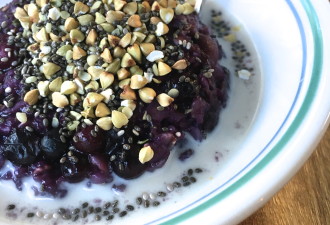Vitamin C has become a hot commodity these days. The sales of Vitamin C products increased dramatically in the first weeks of the COVID pandemic, and many suppliers and stores sold out of this vitamin.
It is often seen as a “immune boosting” vitamin and used commonly in prevention or treatment various infections. This is on the forefront of many peoples mind these days. We don’t have too much data on vitamin C and Covid-19 (except for what I mention later in this post) but we do have some data on using it in the common cold which is caused by various viruses.
What Does Vitamin C do for the Immune System?
Immune system cells – in the process of killing bacteria or inactivating viruses – produce and release a large amount of reactive oxygen species (ROS). Vitamin C is an antioxidant and it effectively neutralizes reactive oxygen species (ROS) and helps to protect other cells in the body from becoming damaged. This is important in controlling the level of inflammation during an immune response. Often, levels of Vitamin C drop during an infection indicating the body is using this vitamin and may have a greater need for it at that time.
Additionally, Vitamin C levels inside white blood cells are much higher than in plasma. In lab studies, Vitamin C has been shown to affect the functions of phagocytes, production of interferon, replication of viruses, and maturation of T-lymphocytes.
It is clear our immune system’s function depends on adequate levels of Vitamin C. Vitamin C has other functions in the body as well, including neurotransmitter synthesis and connective tissue repair. Humans must get their vitamin C through diet as we do not synthesize it in our bodies. The recommended dietary intake of Vitamin C to prevent deficiency for those over 2 years old in Canada is 60 mg. Your body may need a higher amount if you have other health conditions. Clearly, many people take higher amounts as supplements.
What Do Studies Show?
There are clear indications when supplementing Vitamin C is beneficial:
- A study of patients with asthma who had exacerbations from respiratory infections found those who took 1 gram per day decreased the occurrence of attacks by 89%
- Vitamin C halved the incidence of colds in five RCTs during which the participants were under heavy short-term physical activity – these were adults and children who were regularly physically active on most days.
- In another study regular supplementation (1g to 2 g/day) has shown that vitamin C may reduce the duration (in adults by 8%, in children by 14%) and the severity of the common cold.
- Correcting a vitamin C deficiency may help prevent pneumonia and improve outcomes of pneumonia patients.
Intravenous Vitamin C and Covid-19
Intravenous Vitamin C is currently being researched as par of treatment of COVID-19 patients with results expected this fall . Because giving vitamin C has a very low risk, while we await the results of that trial intravenous vitamin C is being used in some hospital protocols along with other medication for treatment of Covid-19 patients. Not all hospitals however are taking this approach yet. A recent statement paper released from the American Association of Naturopathic Physicians is urging more healthcare workers on the front lines to use intravenous vitamin C in those patients admitted to hospitals with moderate to severe Covid-19 illness.
A very recent meta-analysis study published in February 2020 (NOT COVID-19 specific), found that in five trials including 471 patients requiring ventilation for over 10 h, a dosage of 1-6 g/day of vitamin C shortened ventilation time on average by 25%. Vitamin C was most beneficial for patients with the longest ventilation, corresponding to the most severely ill patients.
Intravenous Vitamin C is different from oral in terms of route of administration and absorption. With intravenous, plasma levels can be more steadily maintained. In oral supplementation, some vitamin C will not be absorbed through the gut into circulation. Currently people will not have access to intravenous vitamin C outside of a hospital setting due to social distancing measures.
Vitamin C Recommendations
As always – make sure that you eat foods that are a source of vitamin C. Food is also a source of other antioxidants that work synergistically and add to the benefit of Vitamin C intake. Highest sources per 1 cup include:
- Kiwi: 167 mg
- Bell peppers: 190 mg
- Strawberry: 97 mg
- Broccoli: 81 mg
- Orange: 96 mg
- other good sources include papaya, tomato, snow peas, as well as powders that can be added to smoothies or other foods such as alma berry powder
Supplementing with Vitamin C as a preventive for general viral infections and complications may provide the most benefit in certain populations:
- Those at risk of vitamin C deficiency like some seniors especially those with underlying inflammatory conditions
- Adults and children with inflammatory lung conditions like asthma
- Athletes and people that are very physically active may also decrease the chance of catching a cold
- Making sure children get enough vitamin C may also decrease risk of them getting sick snd help them recover faster
In most of these cases prevention with 1 gram of Vitamin C per day combined with vitamin C in diet should be a good amount.
For the general population, without any underlying health conditions or deficiency, vitamin c supplementation may or may not be helpful in preventing or reducing symptoms of the common cold. Some people choose to take it anyway and there is no risk to that aside from cost.
Oral vitamin C is generally well tolerated, but may cause loose stool or stomach upset in some people.
Please click share on this article if you have found it helpful.
References
Hemilä H, Chalker E. Vitamin C may reduce the duration of mechanical ventilation in critically ill patients: a meta-regression analysis. J Intensive Care. 2020;8:15.
Hemilä H. Vitamin C and Infections. Nutrients. 2017;9(4):339. Published 2017 Mar 29. doi:10.3390/nu9040339
Van Straten, M., Josling, P. Preventing the common cold with a vitamin C supplement: A double-blind, placebo-controlled survey. Adv Therapy19, 151 (2002).
Hemilä H. Vitamin C supplementation and common cold symptoms: Factors affecting the magnitude of the benefit. Med. Hypotheses. 1999;52:171–17
Schertling M., Winsel K., Müller S., Henning R., Meiske W., Slapke J. Action of ascorbic acid on clinical course of infection related bronchial asthma and on reactive oxygen metabolites by BAL cells. Z. Klin. Med. 1990;45:1770–1774.








Hi there
I was taking a lot of vitamin c as recommended these days.
I think it had the opposite effect and landed me with an irritated bladder lots of frequent pee!
I read your advice in the blog by stopping all vitamins for 3 weeks. In the case of mashmellow root, Vit D, Probiotic, Omega will I take these now or after 3 weeks. I don’t have an infection I was tested.